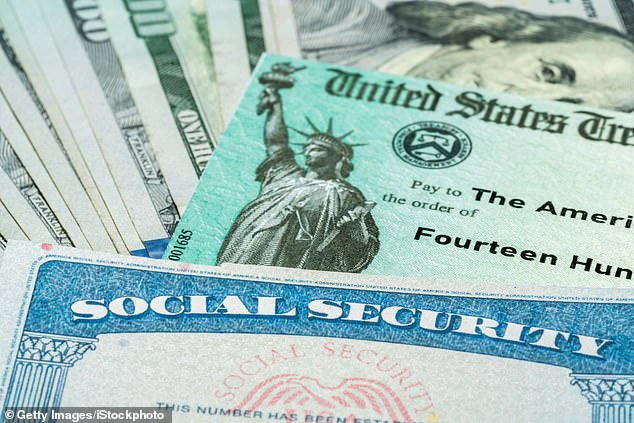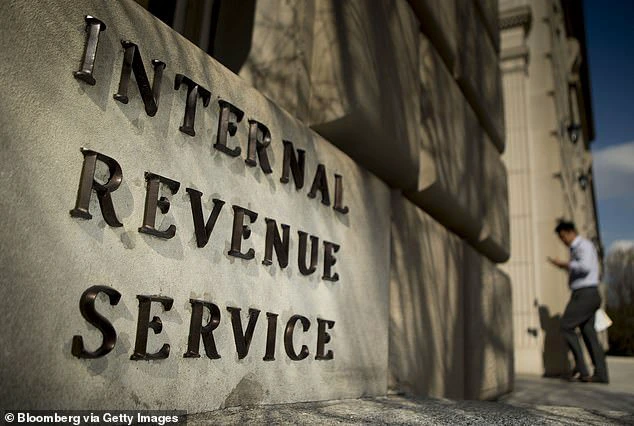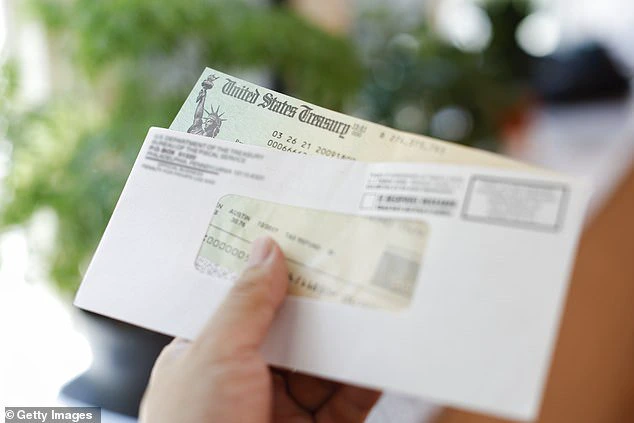Business
Become a Homeowner in a Snowmobiling Haven for Under $42,800!
2025-04-15 05:34:51
View pictures in App save up to 80% data.
If you’re a fan of winter and all its delights, there are specific towns and cities that could be your perfect getaway. Areas that experience significant snowfall, have a crisp atmosphere, and are simply ideal for snowmobiling adventures. If your vision of paradise includes enjoying the great outdoors in a snowy landscape, dressed warmly with a hat, gloves, scarf, boots, and a thick coat, then it may be the right moment for you to consider purchasing a home in these budget-friendly towns.
Moms Who Think reviewed five-year data on median household value and median household income from the U.S. Census Bureau’s 2022 American Community Survey to determine the snowmobiling paradise where homes are most affordable. Cities, towns, and Census-designated places were ranked based on the ratio of median home value to median household income.
Only places with at least 100 owner-occupied housing units overlapping official snowmobiling trails were considered. Spatial data on hiking and snowmobiling trails is from the U.S. Forest Service. (For other affordable options, check out these mountain towns.)
50. Lakeview, Oregon
View pictures in App save up to 80% data.
©"Barn on the Outskirts of Lakeview, Oregon" by Ken Lund is shared under the BY-SA 2.0 license. - Source / License
Median home value: $143,800 (2.7 times income)
Median household income: $52,574
Total population: 2,947
49. Wallingford, Vermont
View pictures in App save up to 80% data.
©SevenMaps/Shutterstock.com
Median home value: $246,600 (2.7 times income)
Median household income: $91,111
Total population: 786
48. Brimley, Michigan
View pictures in App save up to 80% data.
©Footsore Photography/Shutterstock.com
Median home value: $149,000 (2.7 times income)
Median household income: $55,625
Total population: 382
47. Mountain Lakes, New Hampshire
Median home value: $150,800 (2.6 times income)
Median household income: $59,107
Total population: 597
46. Au Sable, Michigan
View pictures in App save up to 80% data.
©Bennian/Shutterstock.com
Median home value: $103,000 (2.5 times income)
Median household income: $40,395
Total population: 1,667
45. East Middlebury, Vermont
View pictures in App save up to 80% data.
©Josh Hummel/Shutterstock
Median home value: $233,500 (2.5 times income)
Median household income: $92,241
Total population: 483
44. Marienville, Pennsylvania
View pictures in App save up to 80% data.
©Paula Breuer/Shutterstock
Median home value: $109,800 (2.5 times income)
Median household income: $43,403
Total population: 3,191
43. Mountain Iron, Minnesota
View pictures in App save up to 80% data.
©Norm Lane/Shutterstock
Median home value: $166,900 (2.5 times income)
Median household income: $67,429
Total population: 2,862
42. Brethren, Michigan
View pictures in App save up to 80% data.
©SevenMaps/Shutterstock.com
Median home value: $95,900 (2.5 times income)
Median household income: $38,810
Total population: 392
41. White Cloud, Michigan
View pictures in App save up to 80% data.
©SevenMaps/Shutterstock.com
Median home value: $111,000 (2.4 times income)
Median household income: $45,682
Total population: 1,197
40. Taconite, Minnesota
View pictures in App save up to 80% data.
©"Snowmobiles" by timo_w2s is available under the BY-SA 2.0 license. - Source / License
Median home value: $169,000 (2.4 times income)
Median household income: $70,000
Total population: 625
39. Twin Lake, Michigan
View pictures in App save up to 80% data.
©Dean Pennala/Shutterstock.com
Median home value: $189,000 (2.4 times income)
Median household income: $78,322
Total population: 1,885
38. Cadillac, Michigan
View pictures in App save up to 80% data.
©Jennifer Jensen/Shutterstock
Median home value: $107,500 (2.4 times income)
Median household income: $45,123
Total population: 10,400
37. Gorham, New Hampshire
View pictures in App save up to 80% data.
©VIKVAD/Shutterstock
Median home value: $132,800 (2.4 times income)
Median household income: $55,845
Total population: 2,043
36. Sand Lake, Michigan
View pictures in App save up to 80% data.
©iStock.com/Oleksii Liskonih
Median home value: $109,100 (2.4 times income)
Median household income: $46,250
Total population: 1,178
35. Mountain, Wisconsin
View pictures in App save up to 80% data.
©iStock.com/MJT Photography
Median home value: $110,200 (2.4 times income)
Median household income: $46,875
Total population: 262
34. Rothbury, Michigan
View pictures in App save up to 80% data.
©Jhansonxi, CC BY-SA 3.0 <https://creativecommons.org/licenses/by-sa/3.0>, via Wikimedia Commons - Original / License
Median home value: $108,600 (2.4 times income)
Median household income: $46,204
Total population: 355
33. Montague, Michigan
View pictures in App save up to 80% data.
©Michael Tatman/Shutterstock.com
Median home value: $163,300 (2.3 times income)
Median household income: $70,547
Total population: 2,514
32. Lisbon, New Hampshire
View pictures in App save up to 80% data.
©"First Snow, Hampton, New Hampshire" by radiorocky is licensed under CC BY-ND 2.0. - Original / License
Median home value: $147,200 (2.3 times income)
Median household income: $64,208
Total population: 872
31. Idaho City, Idaho
View pictures in App save up to 80% data.
©Corrado Baratta/Shutterstock.com
Median home value: $95,600 (2.3 times income)
Median household income: $42,361
Total population: 673
30. Munising, Michigan
View pictures in App save up to 80% data.
©Craig Sterken/Shutterstock.com
Median home value: $112,700 (2.3 times income)
Median household income: $50,069
Total population: 2,003
29. Berlin, New Hampshire
View pictures in App save up to 80% data.
©Brandon Stone/Shutterstock Images
Median home value: $93,200 (2.2 times income)
Median household income: $41,638
Total population: 9,485
28. Virginia, Minnesota
View pictures in App save up to 80% data.
©Michele M Vogel/Shutterstock.com
Median home value: $111,200 (2.2 times income)
Median household income: $49,789
Total population: 8,415
27. Burdett, New York
View pictures in App save up to 80% data.
©SevenMaps/Shutterstock.com
Median home value: $125,000 (2.2 times income)
Median household income: $56,250
Total population: 413
26. Mio, Michigan
View pictures in App save up to 80% data.
©ehrlif/Shutterstock.com
Median home value: $95,000 (2.2 times income)
Median household income: $43,750
Total population: 1,358
25. Aurora, Minnesota
View pictures in App save up to 80% data.
©railway fx/Shutterstock.com
Median home value: $81,500 (2.1 times income)
Median household income: $39,500
Total population: 1,775
24. New Era, Michigan
View pictures in App save up to 80% data.
©"Michigan Snow Birds" by rkramer62 is available under the BY 2.0 license. - Source / License
Median home value: $162,000 (2.0 times income)
Median household income: $79,688
Total population: 441
23. Buhl, Minnesota
View pictures in App save up to 80% data.
©SevenMaps/Shutterstock.com
Median home value: $113,000 (2.0 times income)
Median household income: $55,925
Total population: 1,028
22. Chiloquin, Oregon
View pictures in App save up to 80% data.
© Dee Browning / Shutterstock.com
Median home value: $80,300 (2.0 times income)
Median household income: $40,781
Total population: 696
21. North Warren, Pennsylvania
View pictures in App save up to 80% data.
©Amy Matey/Shutterstock
Median home value: $104,700 (2.0 times income)
Median household income: $53,295
Total population: 1,922
20. Warren, Pennsylvania
View pictures in App save up to 80% data.
©Piper VanOrd/Shutterstock
Median home value: $97,100 (2.0 times income)
Median household income: $49,609
Total population: 9,353
19. Tidioute, Pennsylvania
View pictures in App save up to 80% data.
©woodsnorthphoto/Shutterstock.com
Median home value: $79,000 (2.0 times income)
Median household income: $40,385
Total population: 802
18. Lakewood Club, Michigan
View pictures in App save up to 80% data.
©Amy Lutz/Shutterstock.com
Median home value: $120,900 (1.9 times income)
Median household income: $63,796
Total population: 1,342
17. Newaygo, Michigan
View pictures in App save up to 80% data.
©Zachary Graft/Shutterstock.
Median home value: $86,600 (1.9 times income)
Median household income: $45,733
Total population: 2,458
16. Prepare, MN
View pictures in App save up to 80% data.
©Linda McKusick/Shutterstock
Median home value: $79,800 (1.8 times income)
Median household income: $43,750
Total population: 459
15. Lodi, New York
View pictures in App save up to 80% data.
©SevenMaps/Shutterstock.com
Median home value: $84,200 (1.8 times income)
Median household income: $47,125
Total population: 303
14. Bessemer, Michigan
View pictures in App save up to 80% data.
©Dennis R Swanson/Shutterstock.com
Median home value: $86,400 (1.8 times income)
Median household income: $49,323
Total population: 1,708
13. Oscoda, Michigan
View pictures in App save up to 80% data.
©In His Image/Shutterstock.com
Median home value: $67,500 (1.7 times income)
Median household income: $40,242
Total population: 918
12. Watersmeet, Michigan
View pictures in App save up to 80% data.
©P Andrews/Shutterstock
Median home value: $82,500 (1.7 times income)
Median household income: $49,333
Total population: 243
11. Ridgway, Pennsylvania
View pictures in App save up to 80% data.
©SevenMaps/Shutterstock.com
Median home value: $84,100 (1.7 times income)
Median household income: $50,658
Total population: 4,014
10. Babbitt, Minnesota
View pictures in App save up to 80% data.
©SevenMaps/Shutterstock.com
Median home value: $87,600 (1.6 times income)
Median household income: $53,875
Total population: 1,377
9. Wakefield, Michigan
View pictures in App save up to 80% data.
©Craig Sterken/Shutterstock.com
Median home value: $61,500 (1.5 times income)
Median household income: $41,837
Total population: 1,554
8. Lewis Run, Pennsylvania
View pictures in App save up to 80% data.
©SevenMaps/Shutterstock.com
Median home value: $109,300 (1.4 times income)
Median household income: $75,750
Total population: 690
7. Kane, Pennsylvania
View pictures in App save up to 80% data.
©SevenMaps/Shutterstock.com
Median home value: $62,800 (1.4 times income)
Median household income: $45,481
Total population: 3,605
6. Biwabik, Minnesota
View pictures in App save up to 80% data.
©Plume Photography/Shutterstock
Median home value: $88,300 (1.4 times income)
Median household income: $64,886
Total population: 764
5. Mount Jewett, Pennsylvania
View pictures in App save up to 80% data.
©Susan B Sheldon/Shutterstock
Median home value: $66,900 (1.2 times income)
Median household income: $54,750
Total population: 677
4. Hoyt Lakes, Minnesota
View pictures in App save up to 80% data.
©SevenMaps/Shutterstock.com
Median home value: $84,900 (1.2 times income)
Median household income: $70,583
Total population: 2,095
3. White Pine, Michigan
View pictures in App save up to 80% data.
©Dennis Caskey Photography/Shutterstock
Median home value: $50,900 (1.1 times income)
Median household income: $44,602
Total population: 415
2. Marenisco, Michigan
View pictures in App save up to 80% data.
©Tony Savino/Shutterstock
Median home value: $42,800 (1.1 times income)
Median household income: $39,306
Total population: 249
1. Ramsay, Michigan
View pictures in App save up to 80% data.
©John McCormick/Shutterstock
Median home value: $46,600 (0.8 times income)
Median household income: $57,708
Total population: 272
The image displayed at the beginning of this article is ©DenisTangneyJr / iStock, sourced from Getty Images.
read more


